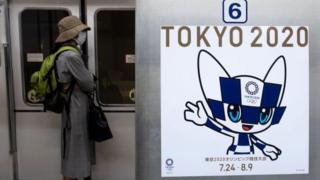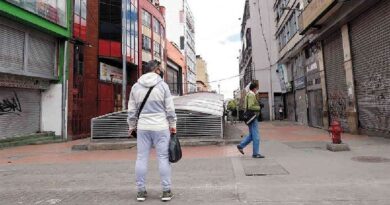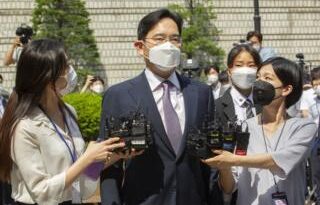Tokyo Olympics postponement leaves UK firms in limbo
 Image copyright Getty Images
Image copyright Getty Images The world of sport has been severely disrupted by Covid-19, with headlines highlighting everything from cancelled events and empty stadiums, to athlete health and spectator safety.
But the pandemic has also had a huge knock-on effect on businesses that support the sport industry – and nowhere is that more apparent than around the Tokyo 2020 Olympics.
The Games, originally due to start on Friday, have been delayed until summer 2021, affecting UK firms who had been fortunate enough to win work.
British companies were set to provide parts for water sport courses, ambulances for horses, power generators, and Olympic venue construction – not to mention softer services such as sponsorship expertise.
‘Logistics operation’
Two of the bigger affected firms are ES Global and Aggreko Events Services.
Glasgow-based Aggreko is the only British firm among the 66 official Tokyo Olympic partners and sponsors, and has been part of the Games since Seoul 1988, providing generators.
Its initial Tokyo contract value was around $200m (£158m) and Aggreko said earlier this year it expected that to increase to around $250m. It has received more than $100m in payments so far, as the Japanese hosts continue to deliver scheduled instalments.
Robert Wells is the managing director of Aggreko Events Services.
«A postponement is much better than a cancellation,» he says. «At the moment we are in detailed conversations with the Games’ organising committee. There is a huge logistics operation to reschedule things.»
He said Aggreko was now removing generating equipment it had already installed in some Olympic venues.
They will go back to Aggreko’s facility in Tokyo, stored, and tested to make sure they are ready for next year.
«Clearly there will be a cost of delay,» Mr Wells adds. «But we can’t quantify that at the moment. We are talking continuously with the organising committee about what it may be.»
As well as generators Aggreko is also supplying the likes of electrical distribution, power cabling, as well as battery storage units to support electricity from existing Japanese power grids.
The firm will be employing a multi-national team of some 500-plus staff and contractors in the run up to the Games, and more than 300 during the event.
‘Level of uncertainty’
Meanwhile, London-based ESG will build and dismantle temporary venues for six events: triathlon, shooting, golf, tennis, rowing and hockey.
«Although organisers have made statements that the Games are only postponed, there are contradictory statements coming out at a lower political level – there is a certain level of uncertainty,» says Olly Watts, joint chief executive of ESG.
«It has been made clear there are circumstances under which the Games could be cancelled, depending on how the virus continues in Japan and worldwide.
«Our existing contract has cover for any Games cancellation.»
He says the firm is waiting to see if the Tokyo organisers are going to come up with new contracts, now the event is taking place in 2021.
«Any changes will be slow to filter down,» he says. «With regard to our existing contracts, my feeling is they will be honoured.»
ESG had started installing venues, for example, 99% of the shooting venue was in place when the Games were called off in March.
The others all had equipment on site and were ready to erect.
Shooting is largely being left up. With the others, all equipment is being stored on site.
Olympic Games organisers say they are renegotiating existing contracts «for example, with regards to fulfilment periods and delivery dates» and are also «newly procuring other items that will be required».
Shipment postponed
It is not just big-name firms who have been affected by the postponement.
Smaller UK firms are hoping to showcase their expertise to the Japanese and wider sporting world.
Newmarket-based Equisave designs and manufactures horse ambulances.
For founder Bill Fellowes, who started the business in 2000, this will be his third Olympics after London 2012 and Rio 2016.
His ambulances are manufactured in the UK and the firm provides them to 17 British racecourses and the Middle East.
«For Tokyo these will be our first trailers to have air-conditioning because of the temperatures there,» he says.
Equisave is providing six vehicles, with two non-air conditioned vehicles already shipped for test events in Japan last year, and the four high-tech ambulances set to follow.
«My contract originally said to ship the remaining items in April but the Games were cancelled before then.
«In my line of work it is financially feast or famine, and we couldn’t afford to sit on the ambulances for a year.
«So we came to an arrangement. As long as the Games organisers would pay for the cost of the ambulances in full – which they have done – we will store them here in the UK free for them.»
The remaining ambulances will now be shipped next year. Despite the uncertainty, one small UK firm is well ahead of the game on Olympic installations.
‘All paid for’
Cumbria-based RapidBlocs makes large blocks to be used in the canoe slalom event. Its equipment has been installed into the concrete course in central Tokyo’s Kasai Rinkai Park.
Company founder Andy Laird says large blocks – made from polyethylene and steel – are put onto the concrete base of a canoe course. The blocks then «sculpt» the direction and flow of water.
Mr Laird says work was finished a year ago.
«We are all paid for. We made it, shipped it, and then installed. The trial event has been held and the course was great.»
As well as Tokyo 2020, he has also already installed the canoe slalom course for the 2024 Games in Paris.
«We completed that in May 2019,» he says. «We are done and dusted for the next two Olympics. That is four Olympics we have supplied now.»
Silver lining?
Away from infrastructure, Len Olender is from True Gold Communications, an agency that helps sponsors and sports bodies with their Olympic marketing programmes.
He has previously worked with the likes of Samsung, Coca-Cola, Fujitsu and NTT.
Now on his 14th winter and summer games, he has been helping the Oceania National Olympic Committees (ONOC).
«We had secured a wonderful plaza at Tokyo harbour for our showcase Oceania Village in partnership with the city of Tokyo,» he says.
But the postponement means it is not known if the site will be available next year.
It is hoped that the project will pick up again early next year, but Mr Olender does not know if there will be funding to restart it.
However, he says there is a potential silver lining to the Olympics’ delay.
Games partners will have the opportunity to activate their sponsor programmes in a different way, taking account of things like social distancing and AI technology – which could create opportunities.
Also, Tokyo 2021 organisers might want to sell the Games as part of the global «rebirth» of the sporting world after coronavirus.
«This could mean heightened interest to be on the Olympic bandwagon, and hence more opportunities for marketing agencies, and sponsorship experts.»


